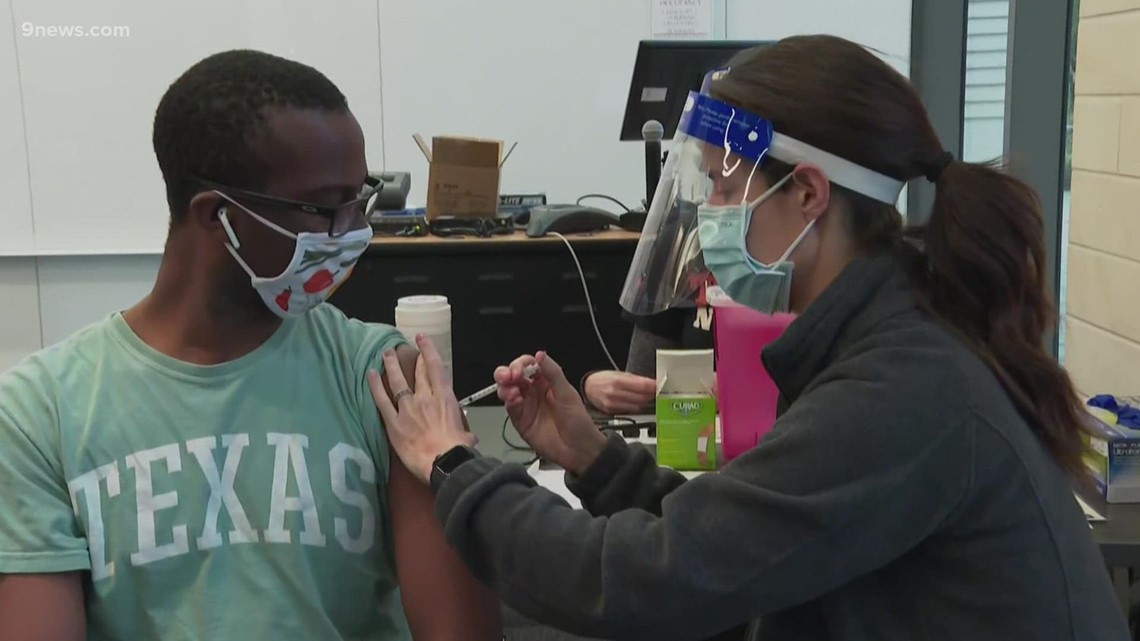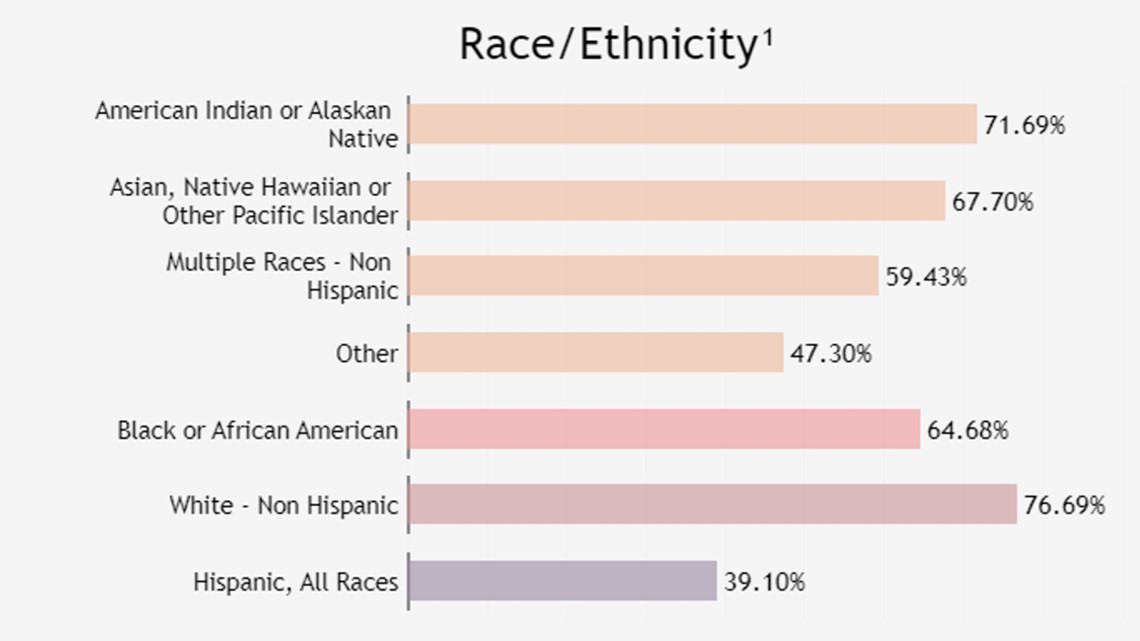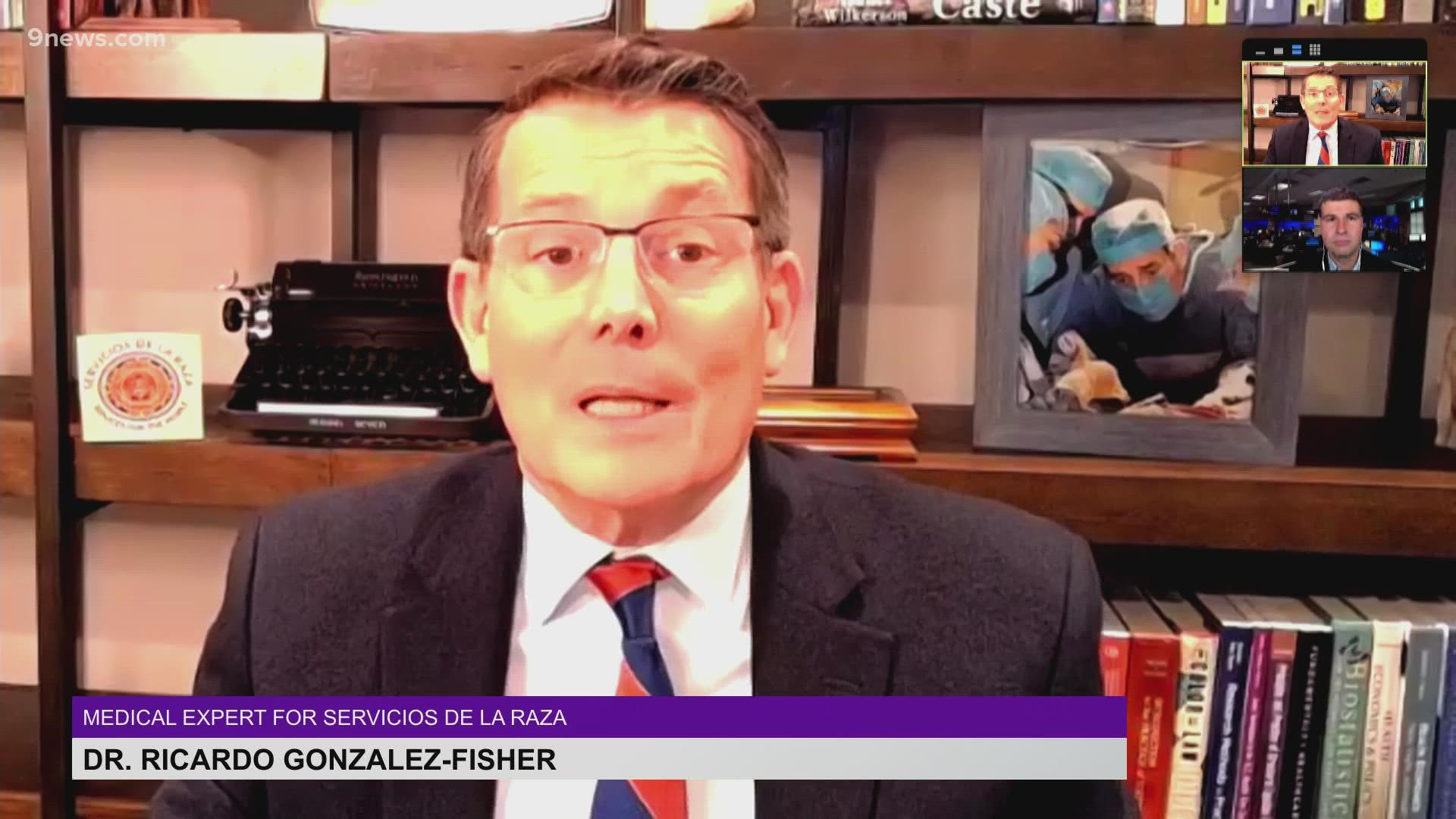COLORADO, USA — As mask mandates come to an end across Colorado and many people are now able to go to bars, restaurants, school and work without having to wear a mask, some experts are still warning against letting our guard down.
“Even if we are starting to have these mandates [end] locally, statewide, nationwide and all over the world, it’s not that we’re out of the woods yet," said Dr. Ricardo González-Fisher.
In this week's segment, Dr. Ricardo González-Fisher of Servicios de la Raza and 9NEWS Watch anchor Chris Bianchi talked about natural immunity and the repercussions of not being vaccinated when infected with COVID-19, as well as what Coloradans should do with the loosening restrictions throughout the state.
9NEWS: As mask orders come to an end across Colorado, what is your overall opinion about it?
Gonzalez-Fisher: This is the result of having 65% of the population in Colorado vaccinated, plus a high percentage of people who have natural immunity at the same time, because they got an infection with the omicron variant that wasn’t severe. Or even if it was severe, they still have some kind of antibodies that were developed there.
So this brought us in a way to have a moment, maybe a couple of months, two or three months, of herd immunity. That’s what we wanted to have since the beginning.
What is herd immunity?
Gonzalez-Fisher: When you have herd immunity, if I am infected and I join a group of 100 people, perhaps 85% will have antibodies and will not be infected, and my infection will not create a public health problem. Like it will happen if they’re not vaccinated or if they’re not immune.
So one thing is, you have masks, save them. We’re going to use them again.
If you do have natural immunity from having already had COVID-19, should you still get vaccinated or boosted?
Gonzalez-Fisher: People who had their immunity through being infected with COVID, but were not vaccinated and then became ill with the omicron variant, had a worse prognosis, or worse clinical course than those who became infected with the omicron variant with two or three doses of the vaccine.
Which tells us that despite having developed antibodies, due to a natural infection, they are not as long lasting, or of as good quality, or as effective as those obtained with the vaccine. That is why we have to continue insisting that people apply their first dose, or their vaccine booster.
According to Gonzalez-Fisher, those who have two doses of a Pfizer or Moderna vaccine have a better response, or less risk, of becoming infected than those who do not have it.
"But more importantly, they have a lower risk of having a severe infection or being in intensive care or even dying from the disease," he said.
Gonzalez-Fisher said that when you compare "this group with two vaccines, against those who had a booster," the difference is bigger and "it is better, and it is advisable to have three doses instead of two.”


"And the other thing that I want people to consider is that we learned a lot of things during the pandemic," he added. "We must not forget to wash our hands, we must not forget to clean our surfaces, we must not forget to keep a certain social distance because there are other infections that we can transmit."
According to the state dashboard, a total of 75.1% of Colorado's population has received at least one dose of the COVID-19 vaccine, but the Hispanic population continues to have the lowest vaccination rate in the state sitting at 39.10%.


In a previous article, Dr. Gonzalez-Fisher said that it's a combination of things that make it challenging for some people to get vaccinated.
"About 42% of the people that we serve are uninsured and this is one of the things that has a certain impact on them," Gonzalez-Fisher said. "The other part is that a lot of the people that we serve are monolingual Spanish speakers, they don't understand the system. They're front line workers that don't have permission from their employers to go to get a vaccine sometimes, and there is a lot of distrust in the system."
Servicios De La Raza, the state's largest nonprofit serving Latinos, continues to work to bring more resources and information about COVID-19 to residents of Colorado who are the most difficult to reach.
The organization offers an extended-hour clinic every Tuesday from 4 p.m. to 8 p.m. located at 3131 W. 14th Ave. No appointment is needed.
This weekend, Servicios will host a mobile clinic in conjunction with the Mexican Consulate in Denver known as Ventanilla de Salud in Greeley. They will be there on Saturday, Feb. 26 from 9 a.m. to 3 p.m. and Sunday, Feb. 27 from 9 a.m. to 12 p.m. at Salida del Sol Academy located at 111 East 26th Street.
Ventanilla de Salud does offer clinics on an ongoing basis every Tuesday from 9 a.m. to 1 p.m.
SUGGESTED VIDEOS: COVID-19 Coronavirus

